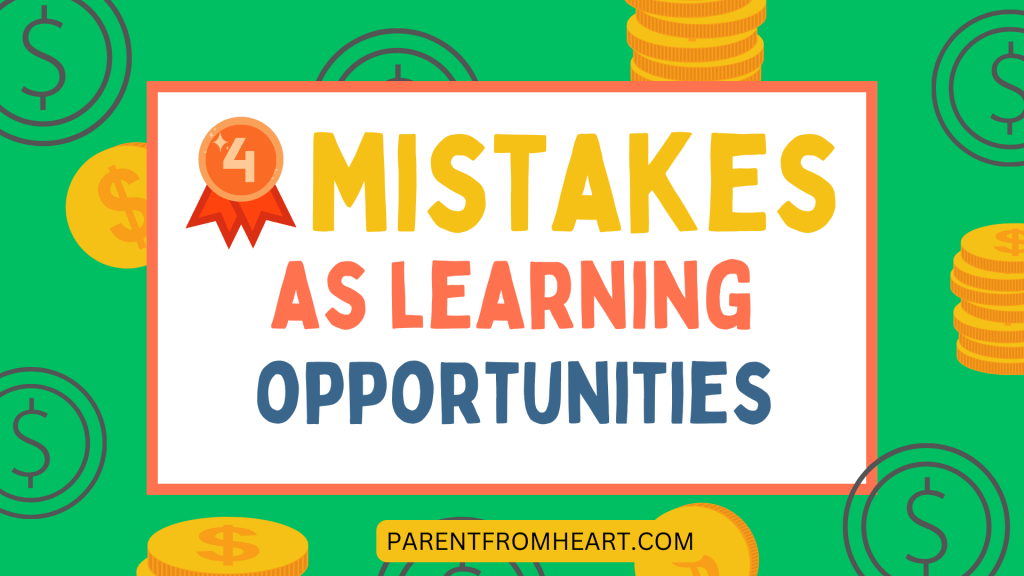What to do to raise a financially savvy adult? It’s to teach kids about money young. Parents who teach their children about money early on have a higher chance of raising economically responsible grown-ups.1
But how exactly can we engage and educate our little ones about money management? We’ve listed five fun and interactive ways to teach financial literacy for kids. Pin, save, or share the image below to educate your young ones today!

1. Play Money Games

Learning through play never fails. It’s how I started educating my boys, and it’s where they respond best. Plenty of money-themed board games, card games, and online games can help teach kids about money management.
Below are some examples of these that educate financial concepts such as saving, investing, and budgeting. Moreover, these games encourage Math skills like counting, addition, and subtraction.2
| Grades K to 5 | Grades 5 to 8 | High School onwards |
| Dolphin Feed | Lights, Camera, Budget | Invest Quest |
| Learning Coins | Financial Football | The Uber Game |
| Dollar Dive | Break the Bank | Payback |
2. Use Real-Life Scenarios

Another way to teach kids about money is by incorporating it into everyday situations. Nothing beats a full-on immersion, parents! I love doing this more than the first option, if not more. It’s the perfect drill when we’re in the grocery store with a budget for their snacks, and they have to prioritize what to buy. The other real-life scenarios you can try are:
- Giving them a weekly or monthly allowance and helping them budget it
- Letting them pay for their own purchases at the store or restaurant
- Discussing bills and showing them how to manage household expenses
3. Allow Them to Make Financial Decisions

Last week, I gave my eldest $50. I told him he could spend it all, save, or invest some of it. Being the wise little guy he is, he saved $44 and bought himself an ice cream for $6. Of course, this earned him a big squeeze and kiss.
You can do this activity with your kids in multiple ways:
- Give them a budget to plan an outing or party
- Ask them to choose between buying an expensive item now or saving up for it later
- Let them decide how to allocate their allowance or earnings from chores
4. Turn Mistakes into Learning Opportunities

Mistakes are inevitable. As parents, we want to shield our kids from making money mistakes. But sometimes, these blunders can be the best teacher. Instead of scolding them for buying a toy they didn’t really need or losing their allowance, use it as a chance to discuss and learn.
Teach them how to recognize impulsive decisions and ways to avoid them in the future. You can also guide them in creating a savings plan to recover from their error. Likewise, when you make a financial mistake, be transparent and explain how you plan to fix it.
5. Lead by Example

Children are like sponges, absorbing everything they see and hear from their parents. They’re really like our mini-mes. Therefore, make sure you’re setting a good example when it comes to finances.
You can go about this in many ways, including:
- Talking openly and positively about money management
- Having a budget and sticking to it
- Saving up for big purchases instead of relying on credit
- Being responsible with credit cards and paying off debts on time
- Demonstrating the benefits of investing and passive income
- Living within your means and avoiding unnecessary expenses
Bonus Tip: Encourage Entrepreneurial Spirit

Business and entrepreneurship aren’t usually taught in schools, but they’re valuable skills. As such, encourage your munchkins to think creatively and develop ideas for earning money. It can be as simple as selling homemade crafts or offering pet-sitting or lawn-mowing services.
These experiences will teach them about money. Moreover, they will open their eyes to hard work, responsibility, and problem-solving. Who knows, they may just become the next young entrepreneur.
Conclusion
Teach kids about money early on to develop good habits and a healthy attitude towards finances. At the same time, follow the tips above to get them started on the right track.
How do you approach financial literacy for kids? Share your tips and experiences in the comments below!
- Durbin, T. “From Pocket Money to Generational Wealth: A Parent’s Guide to Raising Financially Responsible Kids.” Private Wealth Asset Management. ↩︎
- “13 Financial Literacy Games For Children And Adults (Gamification Resources).” Fitzsimons Credit Union. ↩︎











